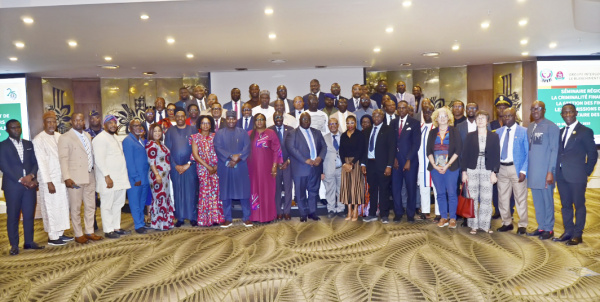GIABA funding took center stage in Lomé as the Inter-Governmental Action Group against Money Laundering in West Africa engaged ECOWAS parliamentarians on urgent financial issues. The discussions emphasized the need for sustainable resources to effectively counter money laundering and illicit financial flows in the region. Leaders acknowledged that GIABA’s mission remains vital, yet its capacity continues to be weakened by delays in state contributions.
The meeting highlighted a pressing concern: financial crime threatens not only individual economies but also regional stability. Without reliable GIABA funding, efforts to detect and disrupt illicit flows face serious setbacks. Therefore, parliamentarians were reminded that their countries must honor commitments promptly. Regular contributions are not just obligations, they are lifelines for collective security.
Participants also recognized the sophistication of modern financial crimes. Criminal networks exploit weak systems, creating channels that drain public wealth and undermine institutions. Moreover, illicit flows fuel corruption, insecurity, and underdevelopment. GIABA has long served as a shield against these threats, but a shield requires strength. With delayed funding, its ability to deliver training, enforcement, and cooperation becomes limited.
The discussions in Lomé were therefore more than administrative; they were strategic. By engaging lawmakers directly, GIABA aimed to secure political will alongside financial resources. Parliamentarians hold the power to influence budgetary allocations and prioritize compliance with regional agreements. Their active support ensures that member states do not neglect vital contributions.
Furthermore, the dialogue underlined the principle of shared responsibility. No single nation can defeat money laundering alone. Criminals operate across borders, exploiting loopholes wherever they find them. Therefore, a collective response requires every country to contribute consistently. When one state delays its support, the entire region feels the impact. Cooperation must be matched by commitment, and commitment must be reflected in timely funding.
Speakers at the engagement also stressed the long-term benefits of sustainable GIABA funding. Stronger oversight and enforcement create safer financial environments, encouraging investment and growth. Conversely, weak enforcement drives investors away, fearing instability and corruption. Parliamentarians were urged to see funding not as an expense but as an investment in economic security.
The session closed with renewed calls for accountability. GIABA reaffirmed its dedication to transparency in managing contributions, ensuring that every resource delivers impact. However, transparency alone cannot replace commitment. The urgency of funding remains clear, and delay only strengthens those who exploit financial systems for crime.
The Lomé discussions demonstrated the seriousness of the moment. GIABA funding is not optional if West Africa seeks to protect its people and economies. The responsibility now lies with member states to act quickly and decisively. By honoring contributions on time, governments can ensure that the fight against money laundering and illicit flows remains strong, coordinated, and effective.






